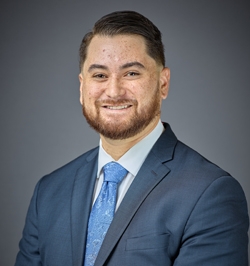Updated EEOC Guidance Outlines ADA Requirements for Individuals with Hearing Disabilities in the Workplace
Contact Clara (C.B.) Burns, Charles C. High, Jr., Gilbert L. Sanchez and Isaac J. Blanco -
January 31, 2023
The Americans with Disabilities Act (the “ADA”) prohibits employers from discriminating against qualified individuals with disabilities. Last week, the U.S. Equal Employment Opportunity Commission (“EEOC”) released an updated resource titled “Hearing Disabilities in the Workplace and the Americans with Disabilities Act.” The EEOC issued this guidance to help employers comply with the requirements under the ADA for employees and applicants who are deaf, hard of hearing, or have other hearing conditions.
The guidance thoroughly examines how employers should navigate the following four topics: (1) asking disability related questions and handling disability related disclosures; (2) reasonable accommodations for hearing disabilities; (3) safety concerns about applicants and employees with hearing disabilities; and (4) preventing hearing disability related harassment in the work place.
It is first important to note which individuals are covered under the ADA. There is no doubt that the ADA covers deaf individuals. The ADA also covers individuals with hearing impairments if they meet the first prong of the ADA’s definition of disability, which means they are substantially limited in hearing or another major life activity. Mitigating measures like a hearing aid must be ignored when making a determination of disability. An individual may also be covered under the second prong if they have a record of an impairment. Under the third prong, an individual is covered if they can show they were “regarded as” disabled if the employer took a prohibited action against them (e.g., refuses to hire or terminates the individual) because of a hearing condition or belief that the individual has a hearing impairment.
The guidance first examines how employers should obtain and disclose medical information. Asking applicants or employees questions regarding a disability can be a difficult subject to traverse, but when handled carefully and with the ADA in mind, an employer can obtain necessary information without exposing the company to liability. During the interview process, an employer must avoid asking whether the applicant has a hearing condition or requires a hearing aid. The employer, however, can ask the applicant if he or she has the ability to perform the essential functions of the job (e.g., whether the individual responds well to instruction in a loud and fast-paced work environment, or whether the employee has good communication skills).
Once an employment offer is made, the employer may ask questions about the applicant’s health (including questions about the applicant's disability) as long as all applicants for the same type of job are treated equally such as being posed the same questions and examinations. The employer must keep any information an applicant discloses about a medical condition confidential. Only under limited circumstances should an employer disclose this information. These exceptions include disclosing to supervisors to provide an accommodation, to first aid and safety personnel if immediate treatment is required, to ADA compliance investigators, and for workers’ compensation or insurance purposes.
The next topic the EEOC examines is accommodation requests relating to hearing disabilities. Common hearing impairment accommodations include a sign language interpreter, assistive technology, appropriate written memos and notes, note-taking assistance, work area adjustments (e.g., quieter work area), alternating an employee’s marginal job functions, or other modifications or adjustments that allow for equal employment opportunities. However, an employer does not need to provide an accommodation to an employee if it will cause the employer an undue hardship. An employer can prove that providing an accommodation would cause an undue hardship if it will result in significant difficulty or expense. For example, absent a showing of undue hardship, an employer may be required to provide a sign language interpreter for a deaf employee during meetings. If an accommodation is too expensive however, such as providing a real time computerized translator over an assistive listening device, an employer may be able to provide the less expensive alternative.
The EEOC guidance next examines how an employer should handle safety concerns regarding applicants and employees with hearing disabilities. An employer may only exclude an individual with a hearing disability from a job for safety reasons when the individual poses a direct threat. A “direct threat” is a significant risk of substantial harm to the individual or others that cannot be eliminated or reduced through reasonable accommodation.
The EEOC uses an example of a school district denying an applicant with a hearing disability a bus driver position believing that she will not be able to drive safely and will not be able to effectively monitor students. If the applicant has a clean driving record and has shown that past accommodations were successful (installing additional mirror), then the school district likely cannot demonstrate that this applicant would pose a direct threat to the safety of others, and its refusal to hire her would violate the ADA. In an alternative example, if no reasonable accommodation could be provided for a forklift driver requesting training for a position that requires that forklift operators be able to communicate with a spotter employee while operating the machine, the employer may deny the employee training on a forklift.
Last, the EEOC guidance examines how an employer can ensure that no employee is harassed because of a hearing disability or any other disability. When it comes to hearing disabilities and all disabilities in general, employers should make clear they do not tolerate harassment based on disability or on any other protected basis. Employers can use a written policy, employee handbooks, staff meetings, and periodic training, as methods to educate and prohibit harassment. The policies should instruct employees to promptly report such conduct to a manager. The employer should then immediately conduct a thorough investigation of any report of harassment and take swift and appropriate corrective action.
The EEOC guidance goes into further detail and can be viewed at Hearing Disabilities in the Workplace and the Americans with Disabilities Act | U.S. Equal Employment Opportunity Commission (eeoc.gov). Please feel free to contact Kemp Smith’s Labor and Employment Department for further guidance and assistance regarding ADA compliance.
The guidance thoroughly examines how employers should navigate the following four topics: (1) asking disability related questions and handling disability related disclosures; (2) reasonable accommodations for hearing disabilities; (3) safety concerns about applicants and employees with hearing disabilities; and (4) preventing hearing disability related harassment in the work place.
It is first important to note which individuals are covered under the ADA. There is no doubt that the ADA covers deaf individuals. The ADA also covers individuals with hearing impairments if they meet the first prong of the ADA’s definition of disability, which means they are substantially limited in hearing or another major life activity. Mitigating measures like a hearing aid must be ignored when making a determination of disability. An individual may also be covered under the second prong if they have a record of an impairment. Under the third prong, an individual is covered if they can show they were “regarded as” disabled if the employer took a prohibited action against them (e.g., refuses to hire or terminates the individual) because of a hearing condition or belief that the individual has a hearing impairment.
The guidance first examines how employers should obtain and disclose medical information. Asking applicants or employees questions regarding a disability can be a difficult subject to traverse, but when handled carefully and with the ADA in mind, an employer can obtain necessary information without exposing the company to liability. During the interview process, an employer must avoid asking whether the applicant has a hearing condition or requires a hearing aid. The employer, however, can ask the applicant if he or she has the ability to perform the essential functions of the job (e.g., whether the individual responds well to instruction in a loud and fast-paced work environment, or whether the employee has good communication skills).
Once an employment offer is made, the employer may ask questions about the applicant’s health (including questions about the applicant's disability) as long as all applicants for the same type of job are treated equally such as being posed the same questions and examinations. The employer must keep any information an applicant discloses about a medical condition confidential. Only under limited circumstances should an employer disclose this information. These exceptions include disclosing to supervisors to provide an accommodation, to first aid and safety personnel if immediate treatment is required, to ADA compliance investigators, and for workers’ compensation or insurance purposes.
The next topic the EEOC examines is accommodation requests relating to hearing disabilities. Common hearing impairment accommodations include a sign language interpreter, assistive technology, appropriate written memos and notes, note-taking assistance, work area adjustments (e.g., quieter work area), alternating an employee’s marginal job functions, or other modifications or adjustments that allow for equal employment opportunities. However, an employer does not need to provide an accommodation to an employee if it will cause the employer an undue hardship. An employer can prove that providing an accommodation would cause an undue hardship if it will result in significant difficulty or expense. For example, absent a showing of undue hardship, an employer may be required to provide a sign language interpreter for a deaf employee during meetings. If an accommodation is too expensive however, such as providing a real time computerized translator over an assistive listening device, an employer may be able to provide the less expensive alternative.
The EEOC guidance next examines how an employer should handle safety concerns regarding applicants and employees with hearing disabilities. An employer may only exclude an individual with a hearing disability from a job for safety reasons when the individual poses a direct threat. A “direct threat” is a significant risk of substantial harm to the individual or others that cannot be eliminated or reduced through reasonable accommodation.
The EEOC uses an example of a school district denying an applicant with a hearing disability a bus driver position believing that she will not be able to drive safely and will not be able to effectively monitor students. If the applicant has a clean driving record and has shown that past accommodations were successful (installing additional mirror), then the school district likely cannot demonstrate that this applicant would pose a direct threat to the safety of others, and its refusal to hire her would violate the ADA. In an alternative example, if no reasonable accommodation could be provided for a forklift driver requesting training for a position that requires that forklift operators be able to communicate with a spotter employee while operating the machine, the employer may deny the employee training on a forklift.
Last, the EEOC guidance examines how an employer can ensure that no employee is harassed because of a hearing disability or any other disability. When it comes to hearing disabilities and all disabilities in general, employers should make clear they do not tolerate harassment based on disability or on any other protected basis. Employers can use a written policy, employee handbooks, staff meetings, and periodic training, as methods to educate and prohibit harassment. The policies should instruct employees to promptly report such conduct to a manager. The employer should then immediately conduct a thorough investigation of any report of harassment and take swift and appropriate corrective action.
The EEOC guidance goes into further detail and can be viewed at Hearing Disabilities in the Workplace and the Americans with Disabilities Act | U.S. Equal Employment Opportunity Commission (eeoc.gov). Please feel free to contact Kemp Smith’s Labor and Employment Department for further guidance and assistance regarding ADA compliance.
















































